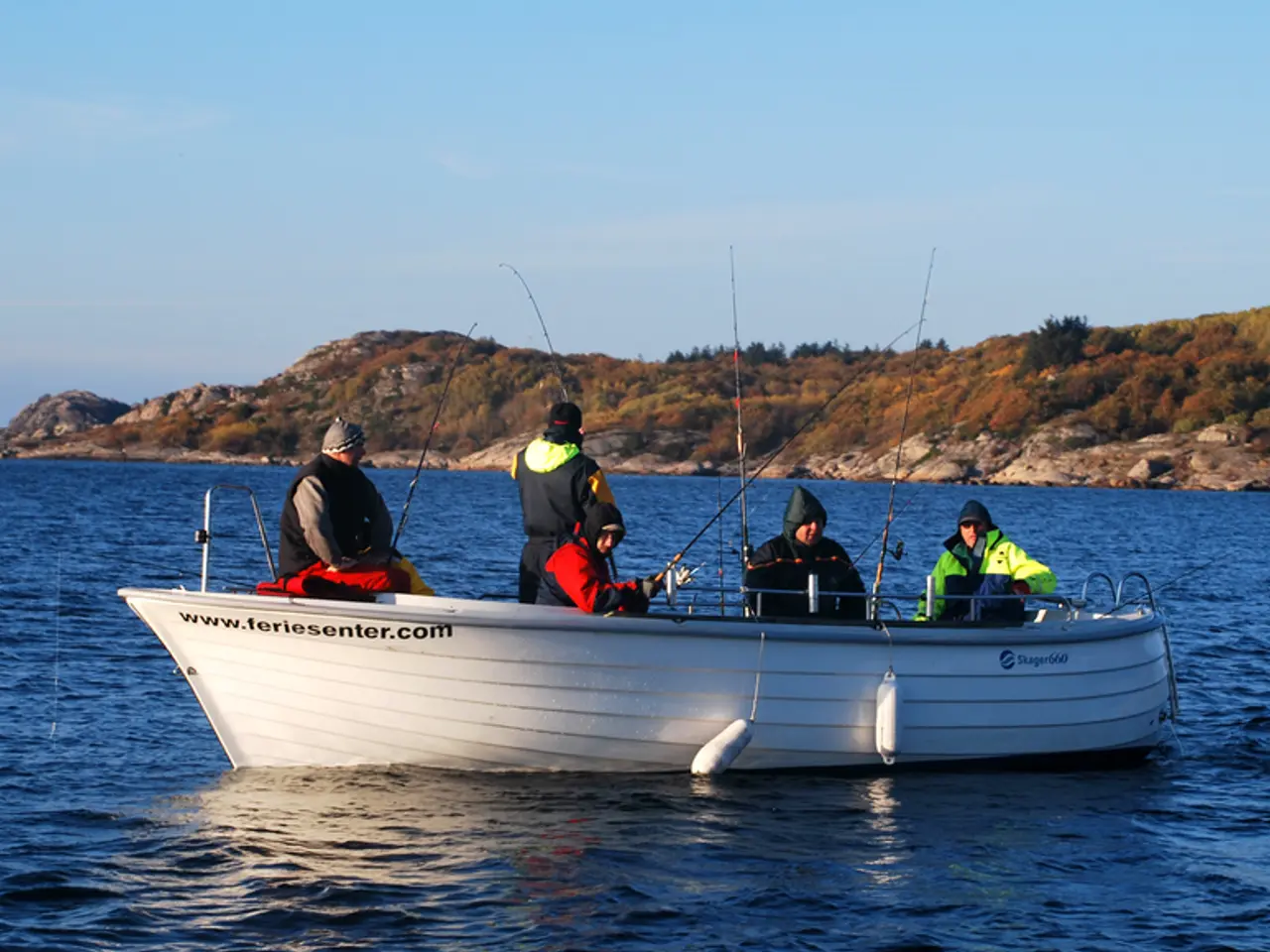Tuvalu, a small Pacific island nation, faces impending loss due to climate change, prompting over 80% of its population to seek relocation in Australia via the world's first "Climate Visa" program.
In a historic move, Australia has launched the Australia-Tuvalu Falepili Union treaty's climate visa program in 2024, offering a pioneering legal pathway for migration due to climate impacts. This program allows up to 280 Tuvaluans per year to live, work, and study in Australia through a lottery system.
A Beacon of Hope Amidst Climate Threats
The visa offers mobility with dignity amidst existential threats caused by climate change, particularly rising sea levels that threaten Tuvalu’s very existence. The scheme preserves Tuvalu’s sovereignty and statehood, recognizing ancestral ties and enabling unrestricted travel between Tuvalu and Australia despite possible future uninhabitability of the islands.
Addressing the Challenges
However, the limited quota of 280 people per year is small relative to the population at risk, necessitating a lottery that inevitably leaves many without immediate options. Managing the integration of Tuvaluans into Australian society, ensuring access to employment, education, social services, and cultural preservation, represents an ongoing challenge. There are concerns about preserving social cohesion, identity, and support for those who remain as the community partially relocates.
Paving the Way for Future Solutions
Expanding the visa quota or creating additional climate mobility pathways could better address the scale of displacement arising from climate impacts. Strengthening bilateral cooperation on climate adaptation and resilience in Tuvalu alongside migration is crucial to reduce forced displacement. Developing comprehensive integration support programs in Australia, including education, employment, and community-building initiatives, would ease challenges faced by migrants. Continuous dialogue with Tuvaluan communities is necessary to refine the program and ensure it honors cultural identity and aspirations.
A Model for the World
This visa model is the world’s first bilateral climate mobility agreement, aiming to provide a framework other vulnerable nations may replicate, balancing humane migration pathways with respect for national sovereignty under climate pressures. The Australian government has pledged support services for new migrants, including employment guidance and digital literacy training. Migration from Tuvalu to Australia is likely to accelerate, with nearly 4% of the population potentially relocating each year.
Tuvalu's Struggle and Resilience
Tuvalu, comprised of nine coral islands and sitting only two meters above sea level, is highly vulnerable to rising tides, intensified storms, and coastal erosion. If the current pace continues, most of Tuvalu, including its capital, Funafuti, will be underwater by 2050. Tuvalu's Prime Minister Feleti Teo has called for the development of an international treaty on sea level rise to enshrine the legal rights of affected states and people.
Adapting to the Digital Age
In response to these challenges, Tuvalu has launched an ambitious project to become the world's first digital nation, including 3D scans of the islands and a virtual government platform. Australia and New Zealand are among the 25 nations that have recognized Tuvalu’s push to redefine itself digitally.
A Call for Global Action
Despite efforts to adapt to climate change, Tuvalu's physical geography and limited resources make it nearly impossible to adapt at the required scale or speed. NASA reports that global sea levels are rising faster than expected, with some areas experiencing rises at three times the global average. Tuvalu's story of blending migration, diplomacy, and digital innovation may serve as a model for other small island nations facing similar challenges.
Australia's Commitment
Australia has committed $150 million to assist Tuvalu with development and resettlement needs. In late 2023, Tuvalu and Australia signed the Falepili Union, a diplomatic and security agreement that also launched the world's first "climate visa" program. Under the climate visa program, 280 Tuvaluans will be granted permanent residency in Australia each year.
In this partnership, Australia and Tuvalu are setting an example of how nations can collaborate to address the urgent challenges posed by climate change, offering hope and a model for other vulnerable countries.
- The Australia-Tuvalu Falepili Union treaty's climate visa program, launched in 2024, is a pioneering legal pathway for migration due to climate impacts, aiming to provide mobility with dignity for Tuvaluans under existential threats caused by rising sea levels.
- The limited quota of 280 people per year for the climate visa program is a small relative to the population at risk, necessitating a lottery that leaves many without immediate options.
- Strengthening bilateral cooperation on climate adaptation and resilience in Tuvalu alongside migration is crucial to reduce forced displacement, and expanding the visa quota or creating additional climate mobility pathways could better address the scale of displacement arising from climate impacts.
- Developing comprehensive integration support programs in Australia, including education, employment, and community-building initiatives, would ease challenges faced by migrants, as managing the integration of Tuvaluans into Australian society represents an ongoing challenge.
- The Australia-Tuvalu climate visa model is the world’s first bilateral climate mobility agreement, aiming to provide a framework other vulnerable nations may replicate, balancing humane migration pathways with respect for national sovereignty under climate pressures.
- In response to challenges presented by climate change, Tuvalu has launched an ambitious project to become the world's first digital nation, including 3D scans of the islands and a virtual government platform.
- Despite efforts to adapt to climate change, such as migration, diplomacy, and digital innovation, Tuvalu's physical geography and limited resources make it nearly impossible to adapt at the required scale or speed, thus urging a call for global action as global sea levels are rising faster than expected.








